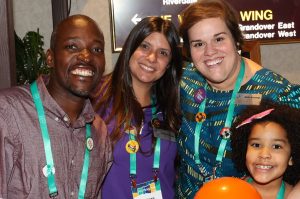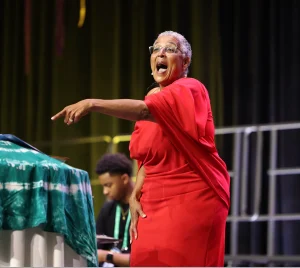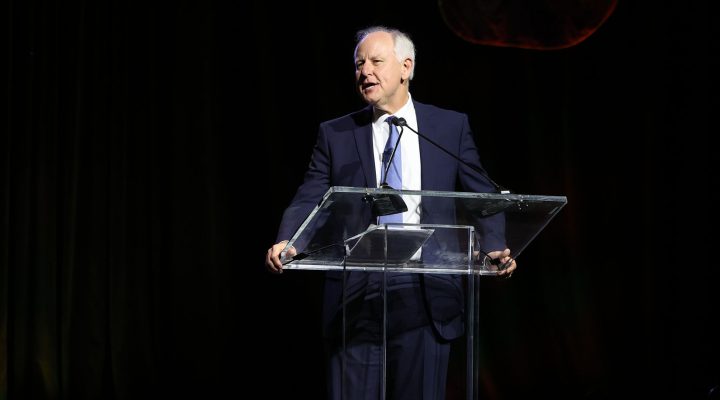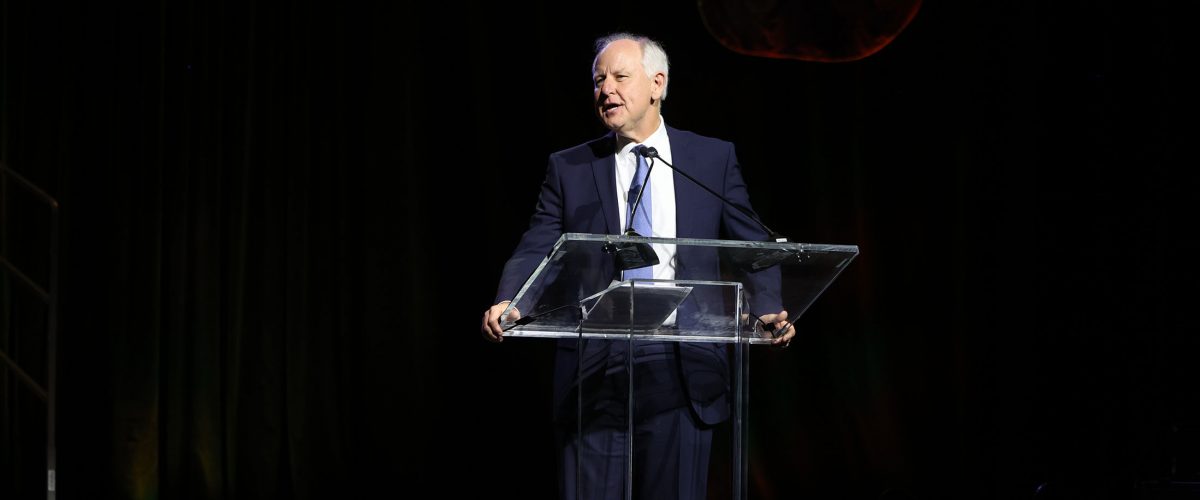The Cooperative Baptist Fellowship is called to testify to the wider church and society that diversity is a source of strength rather than a weakness to be feared, CBF Executive Coordinator Paul Baxley said.
“I believe that is an act of God and I believe it is a clue that God is in the midst of reimagining this Cooperative Baptist Fellowship so that we can be an image of the love and power of God in a broken and hurting world that desperately needs to see a still more excellent way,” Baxley said in his June 20 plenary session address at the 2024 CBF General Assembly in Greensboro, N.C.
“Diversity in our denominational life and in our congregational life has become more and more pronounced as the theological and political diversity that has been among us from the beginning has expanded to include geographical, generational, ethnic and racial diversity as God has brought us toward the present.”

CBF General Assembly participants celebrated Juneteenth on the opening day of the assembly. (Photo: CBF communications)
Embracing diversity is a radically countercultural calling in a world torn by fear, hatred, anger and violence, and in which the all-too-common response is to retreat into bubbles of homogeneity where difference is treated as an existential threat, Baxley said.
“What happens more and more and more is that people find themselves retreating into the safe and friendly confines of echo chambers where people already look like them, pray like them, believe like them, talk like them, walk like them, agree with them, and tell us all how wonderful we are and how wrong everyone else is.”
While that pattern certainly describes the culture and influences such as cable news and social media, it increasingly defines congregational and denominational life in the U.S., he said. “Yet in the midst of all that demonization and all that dehumanization and all that anger and hatred and violence and retreat into echo chambers, the Cooperative Baptist Fellowship is becoming more diverse.”
Diversity was built into the Fellowship since its founding as a “denominational community” of Baptists who disagreed on some points of theology but valued congregational autonomy enough to work across those differences.

Keynote preacher Zina Jacque on the opening night of CBF’s 2024 General Assembly. (Photo: CBF communications)
Baxley cited internal tensions around LGBTQ inclusion as an example of how that founding principle continues to play out in the fellowship today. “CBF is a community that includes congregations and partners and individuals who describe themselves as welcoming and affirming. And the CBF community also includes congregations and partners and differences and individuals who do not see themselves in that way.”
The number of both kinds of churches is increasing along with concern and compassion for LGBTQ people regardless of the stance on inclusion, he added. “In my visits with some CBF congregations that would be described as most traditional in their theology, I have heard pastors and lay leaders ask out loud, ‘What does it mean to do ministry in a faithful and redemptive way in the presence of, and in ways that include, the LGBTQ community that is in their congregation?’”
Conservatives within CBF also have expressed outrage at the mistreatment and violence LGBTQ persons are experiencing across the nation and in church spaces, he reported. “I had a pastor ask me the question, ‘How can someone who loves Jesus speak about people made in the image of God in that way, and in ways that might make them take their own lives?’”
Baxley urged those assembled to show love and respect when mingling with Baptists with differing points of view on LGBTQ inclusion and other potentially divisive issues. “We know that although we all see through a glass darkly, we are all saved by God’s grace, we are all made in the image of God and we have to show the world a more excellent way of being together in ways that give life and hope and are not marked by fear.”
Some already are noticing the Fellowship’s penchant for staying and working together despite diverse attitudes on theology, politics, gender and LGBTQ inclusion, he said.
“Because we occupy a rather unique place on these matters, people from other denominations have been asking pastors and state coordinators and deacon chairs and denominational relations committee chairs some pretty interesting questions. I cannot tell you how many times in the last six months I heard a CBF pastor say to me, ‘We have United Methodists from both sides of the schism visiting our churches.’”
CBF’s adherence to historic Baptist polity is a draw for Christians outside the Fellowship, he said. “We are a denomination that works for congregations, and we entrust with congregations the responsibility of making these decisions. It’s our responsibility to pray for congregations, support congregations, try to make their life easier and at the same time more faithful. It is our calling to honor the decisions of congregations.”
On the other side, Baxley said some critics of CBF claim its emphasis on diversity reveals an abandonment of Scripture, a lack of moral backbone and a desire to “go along to get along” with the culture, he said. “I have yet to meet a Cooperative Baptist who does not love the Bible. I have yet to meet a Cooperative Baptist who is not wrestling deeply with the Scriptures. I have yet to meet a Cooperative Baptist who is not interested in discerning a response to God’s call.”


